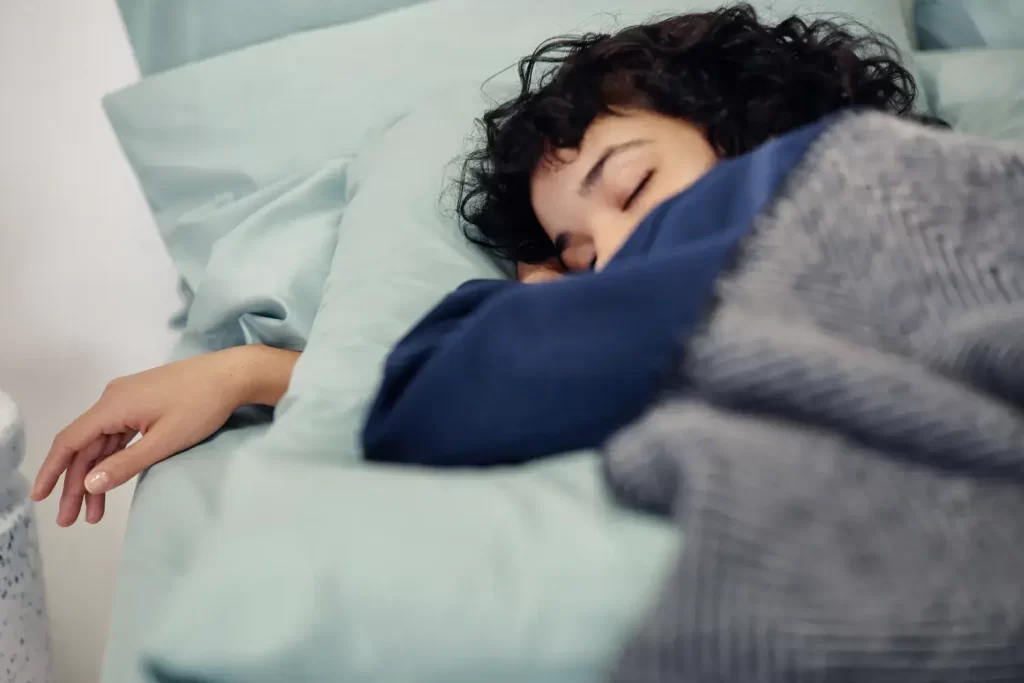Ways to Improve Your Sleep Quality
If you’re looking for ways to improve your sleep quality, there are a number of options you can consider. One way to ensure you’re getting enough rest is to limit your use of electronic devices before bedtime. Another is to set up a routine to help you relax and unwind.
Table of contents
Create a Comfortable Sleep Environment
Creating a comfortable sleep environment involves many factors. This includes selecting the right bedding, using the right light, and setting a proper temperature. However, the most important part is a good night’s sleep. You may need to invest some time in planning out your sleep environment and a little creativity goes a long way.
In a nutshell, the most efficient way to achieve a good night’s sleep is to establish a calm and quiet environment. To do this, you should remove electronics from your bedroom, avoid exposing yourself to bright lights and noise, and reduce stimuli before bed.

Using white noise can help mask external sounds, which will ways to improve your sleep quality. Additionally, you should consider an air purifier, which can purify the air to a level that helps you sleep.
While you’re at it, consider installing some quality curtains or blinds to keep outside light out of your room. Invest in a fan, too, which will help circulate warm air around your body, easing the transition to slumber.
Aside from the obvious factors, you can also benefit from scented candles. For example, lavender is a good scent for promoting sleep. Alternatively, you could opt for a rose.The lighting in your room will also have an impact on your quality of sleep. Light sources that have low wattage bulbs are a good idea.
Establish a Relaxing Pre-Sleep Routine
Developing a sleep routine can be a daunting task, but there are many simple steps you can follow to ways to improve your sleep quality. Whether you are battling insomnia or simply want to get the most out of your zzzs, these tips are sure to get the ball rolling.
A great bedtime ritual should include something that helps you prepare for sleep, as well as a few relaxing activities. These may include listening to calming music, taking a warm bath, or even stretching.

The best pre-sleep routines are customized to each individual’s needs. Try to avoid having an empty stomach, and make your bedroom cool and dark. In addition to being relaxing, you will find that this type of routine can help improve your overall health.
Using a white noise machine, preferably a specialized one, can be a useful way to help you sleep. It will produce a consistent level of noise in your room that will aid in lowering your body temperature.
Keeping a journal is a good way to track your thoughts, which can help you get a better night’s sleep. This type of activity is especially important if you are prone to worrying about your future. You should also get in the habit of making eye contact with someone during the day.
Limit Electronic Device Use Before Bedtime For Improve Your Sleep Quality
Using electronic devices before bedtime can have a negative effect ways to improve your sleep quality. This is why experts recommend turning off your device at least 30 minutes before you go to sleep.
Several studies have shown that using electronic devices before bedtime can increase the likelihood of poor sleep. ED use before bedtime has been linked to sleep disturbances and depression. Therefore, the impact of ED usage before bedtime on sleep quality is considered a public health issue.
In order to investigate the relationship between ED use and sleep, the present study recruited university students. Participants completed a self-report survey and the Pittsburgh Sleep Quality Index. They were divided into three age groups: adolescent, adult, and older.

Participants were asked to declare whether they used EDs during the previous day and at night. Most of the students reported that they used EDs every day. However, one-tenth of them reported occasional ED usage within a week.
The results showed that using EDs before bedtime was associated with shorter sleep duration and a shorter sleep onset latency. Additionally, ED use was positively associated with sleep deficiency.Among the students, the most common EDs were smartphones. Another common device was a PC. Laptops and tablets were also used.
For adolescents, the most common activity was reading, followed by listening to music and chatting online. Girls reported a higher amount of online chatting and a greater use of cell phones and Mp3 players.
How Much Sleep Do You Really Need?
Sleep is critical to maintaining a healthy lifestyle, but how much shut-eye is actually required? The National Sleep Foundation suggests the following amount of time spent sleeping for individuals of the following ages:
| Age Group | Recommended Sleep Time |
| Newborns (0-3 months) | 14-17 hours per day |
| Infants (4-11 months) | 12-15 hours per day |
| Toddlers (1-2 years) | 11-14 hours per day |
| Preschoolers (3-5 years) | 10-13 hours per day |
| School-age children (6-13 years) | 9-11 hours per day |
| Teenagers (14-17 years) | 8-10 hours per day |
| Adults (18-64 years) | 7-9 hours per day |
| Older adults (65+ years) | 7-8 hours per day |
The amount of sleep that an individual need will depend on a number of variables, including their lifestyle, genetics, and overall health. Yet, the vast majority of people fall within these broad parameters.
Benefits of Getting Enough Sleep
It is essential for many areas of your health and well-being that you get an adequate amount of sleep. A sufficient amount of sleep has many benefits, including the following:
Improved Memory and Learning
Memory consolidation is the process of moving newly learned information from short-term to long-term memory. Sleep plays an important part in the memory consolidation process. Obtaining the recommended amount of sleep each night can improve your ability to remember and store knowledge.
Better Mood and Mental Health
Sleep deprivation has been linked to a variety of mood problems, including anxiety and sadness. A better night’s sleep can help you feel more in control of your emotions and lessen the effects of these conditions.

Reduced Risk of Chronic Diseases
Sleep is essential for many different physiological functions, including the regulation of hormones, the function of the immune system, and the management of inflammation. It has been shown that getting an adequate amount of sleep can help reduce the chance of developing chronic diseases like obesity, diabetes, and heart disease.
Improved Physical Performance
Because sleep is necessary for the healing and regeneration of muscle tissue, getting enough of it is critical not only for athletes but also for anyone who engages in physical exercise. It is possible to boost your endurance, speed, and general performance by getting an adequate amount of sleep.
Final Thought
Sleep quality improves physical and mental health. A pleasant sleep environment, a soothing pre-sleep ritual, and minimizing electronic device use before bedtime will help you achieve a good night’s sleep. You can improve your sleep quality by buying good bedding, employing white noise to block out noise, or relaxing with a warm bath or stretching. Get a good night’s sleep by prioritizing it.
If you are interested in the phases of sleep, you can click here.
And you can check out news category for more. Click here please.
FAQ
The body and mind need sleep. Our brain and body undergo intricate processes to repair and rejuvenate during sleep. Rebuilding cells, consolidating memories, processing emotions, and also regulating hormones and metabolism are examples. Poor sleep can cause several health issues.
· 10 hours before bedtime: Avoid caffeine and alcohol, which might impair sleep.
· 3 hours before bedtime: Avoid big meals and excessive exercise, which might disrupt sleep.
· 2 hours before bedtime
· 1 hour before bedtime
· 0: Provide a dark, quiet, cool, and comfortable sleep environment.
Sleeping is beneficial. It regulates hormones, metabolism, immunity, mood, cognitive function, and memory consolidation and learning. Quality sleep reduces the risk of obesity, diabetes, heart disease, and depression. It also helps the body repair and rejuvenate cells and tissues.
Sleep deprivation harms mental and physical health. It deprivation causes weariness, poor cognition and memory, mood changes, irritability, and decreased performance and productivity. Deprivation can lead to obesity, diabetes, heart disease, and depression. Sleep deprivation weakens the immune system and slows physical recovery. It also increases the chance of accidents and injuries, especially in jobs that demand attentiveness.
NREM and REM are the basic forms of sleep. NREM sleep has three stages that slow brain waves, heart rate, and muscles. Rapid eye movements, brain activity, and vivid dreams define REM sleep. A healthy sleep also cycle involves many cycles of NREM and REM sleep. All types of sleep are important for health and well-being, making it hard to choose.





